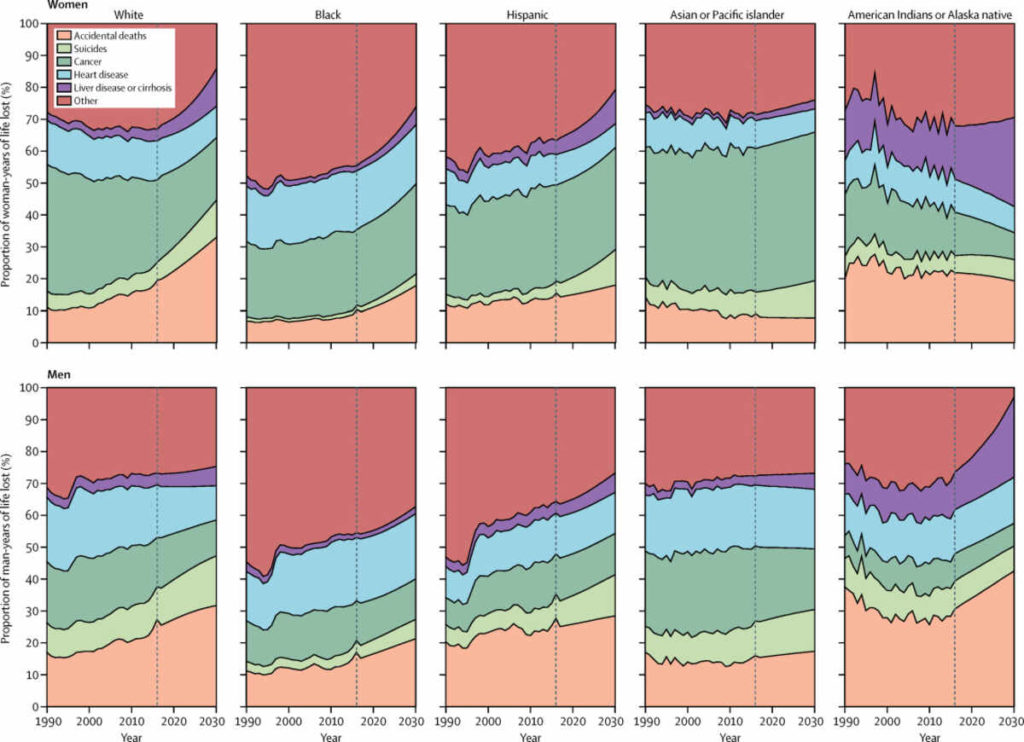
Leading Causes of Death in South Carolina & What it Means for Seniors
More than 17% of the over five million residents of South Carolina are over the age of 65. That means that there are more than 850,000 senior citizens living in Palmetto State, putting it in the top 10 states with the largest number of senior citizens. Retirement and discounts are just two things that come with being a senior citizen, but unfortunately, so do age-related illnesses, and South Carolina ranks low (number 40) when it comes to health in the U.S. Here’s a look at the leading causes of death in South Carolina.
#1: Heart Disease
Heart disease is the leading cause of death in South Carolina and the entire United States as a whole. It’s a group of diseases of the heart, and blood vessels, and even include blood clots. The most common types of heart disease include coronary artery disease, congestive heart failure, and peripheral artery disease. Your risk begins to increase after age 65.
#2: Cancer
Cancer is the second leading cause of death in both South Carolina and the United States. In the U.S. the most common types of cancer are breast, lung, prostate, colon, skin, bladder, endometrial, and pancreatic. In South Carolina, lung, colon, breast, and pancreatic cancers are more common and cause more deaths than other cancers. While there are many different risk factors for different types of cancer, age is a major factor for all types of cancer.
#3: COVID-19
The 2020 COVID-19 pandemic caused the virus to be the third leading cause of death in both South Carolina and the entire U.S. Although anyone can get infected with the virus, it proved to be more fatal among the elderly and those with compromised immune systems.
#4: Accidents
Coming in at number four in South Carolina are accidents. Accidents are common among all age groups, but falls and car accidents are the most common accidents among those over 65. Falls are the leading cause of both fatal and non-fatal accidents among the elderly. They can result in broken hips, ribs, and even brain (head) injuries.
#5: Respiratory Diseases
Asthma and COPD (chronic obstructive pulmonary disease) are the two most common respiratory diseases in the U.S. Asthma is thought of more as a childhood disease, but COPD is associated with older age. COPD is a group of lung diseases, with bronchitis and emphysema being the most common types. In addition to age, COPD can also be caused by smoking and exposure to environmental toxins.
#6: Stroke
A stroke occurs when blood to the brain gets interrupted, and it can be life-threatening. The risk of having a stroke doubles each decade after the age of 55, but it can happen at any age. Other risk factors for stroke include heart disease, diabetes, high blood pressure, and high cholesterol— all of which also can be related to age.
#7: Alzheimer’s Disease
Alzheimer’s is a type of dementia that affects memory and other important cognitive functions. After age 65, the risk of developing Alzheimer’s doubles every year, and about one in three seniors over the age of 85 develop Alzheimer’s. This disease often requires patients to be admitted into an assisted living facility, and it also puts them at a higher risk of being a victim of nursing home abuse.
#8: Diabetes
Type 2 diabetes is much more common than type 1 diabetes, especially in older adults, with the risk increasing after age 45. This type of diabetes is when the body doesn’t respond to insulin, a hormone made by the pancreas that breaks down sugar. Diabetes can cause foot and eye problems, heart attacks, and stroke.
#9: Liver Disease
Liver disease is a variety of conditions that prevent the liver from working properly. The most common type is cirrhosis, which is scarring of the liver combined with poor liver function. Age isn’t a huge risk factor for cirrhosis, but excessive drinking of alcohol is.
10: Kidney Disease
Chronic kidney disease is defined as the gradual loss of kidney function. Diabetes and high blood pressure are two of the main causes of kidney disease, but kidney function also tends to decrease with age.
These statistics show just how important it is for not only seniors to take care of themselves, but for everyone. The better care you take of yourself when you’re younger, the more you can decrease your risk of developing an age-related disease— even if you have a family history of one.




